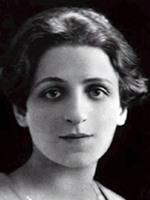The Quids
The little quids, the million quids,
The everywhere, everything, always quids,
The atoms of the Monoton,
Each turned three essences where it stood,
And ground a gisty dust from its neighbors’ edges,
Until a powdery thoughtfall stormed in and out,
The cerebration of a slippery quid enterprise.
Each quid stirred.
The united quids
Waved through a sinuous decision.
The quids, that had never done anything before
But be, be, be, be, be,
The quids resolved to predicate
And dissipate in a little grammar.
Oh, the Monoton didn’t care,
For whatever they did—
The Monoton’s contributing quids—
The Monoton would always remain the same.
A quid here and there gyrated in place-position,
While many essential quids turned inside-out
For the fun of it
And a few refused to be anything but
Simple, unpredicated copulatives.
Little by little, this commotion of quids,
By threes, by tens, by casual millions,
Squirming within the state of things,
The metaphysical acrobats,
The naked, immaterial quids
Turned inside on themselves
And came out dressed,
Each similar quid of the inward same,
Each similar quid dressed in a different way—
The quid’s idea of a holiday.
The quids could never tell what was happening.
But the Monoton felt itself differently the same
In its different parts.
The silly quids upon their rambling exercise
Never knew, could never tell
What their pleasure was about,
What their carnival was like,
Being in, being in, being always in
Where they never could get out
Of the everywhere, everything, always in,
To derive themselves from the Monoton.
But I know, with a quid inside of me,
But I know what a quid’s disguise is like,
Being one myself,
The gymnastic device
That a quid puts on for exercise.
And so should the trees,
And so should the worms,
And so should you,
And all the other predicates,
And all the other accessories
Of the quid’s masquerade.
This poem is in the public domain. Published in Poem-a-Day on January 21, 2024, by the Academy of American Poets.
“The Quids” appears in Laura Riding Jackson’s debut collection, The Close Chaplet (Hogarth Press, 1926). In his introduction to Ugly Duckling Presse’s 2020 reissue of the book, Mark Jacobs, founder of The Laura (Riding) Jackson Archive at Nottingham Trent University, writes, “It is a mistake to see ‘The Quids’ merely as social satire, although one can see why critics have been misled. There is a great sense of fun and hijinks here, the myriad squirming little ‘quids’ (roughly, Latin for ‘the essence of a thing’ but connately ‘what?’ or ‘why?’) gambolling [sic] on life’s holiday, finding themselves uniquely alive, and eventually, the poem suggests, becoming human—‘a powdery thoughtfall’ and ‘cerebration.’ It should be noted, however, that the poem opens with a description of the ‘quids’ as ‘atoms’—thus adumbrating all existence, not just the human—and that these atoms issue from something called ‘the Monoton,’ a rather bleak-seeming name in English (pointing to Latin mon, mons, etc.), meaning something huge (e.g., a mountain) or something that instructs and advises (as in ‘demonstrates,’), or simply ‘drones.’ [. . .] At once fanciful, but wholly serious, the concept of the Monoton is Riding’s first foray into her personal version of the Creation myth.”

